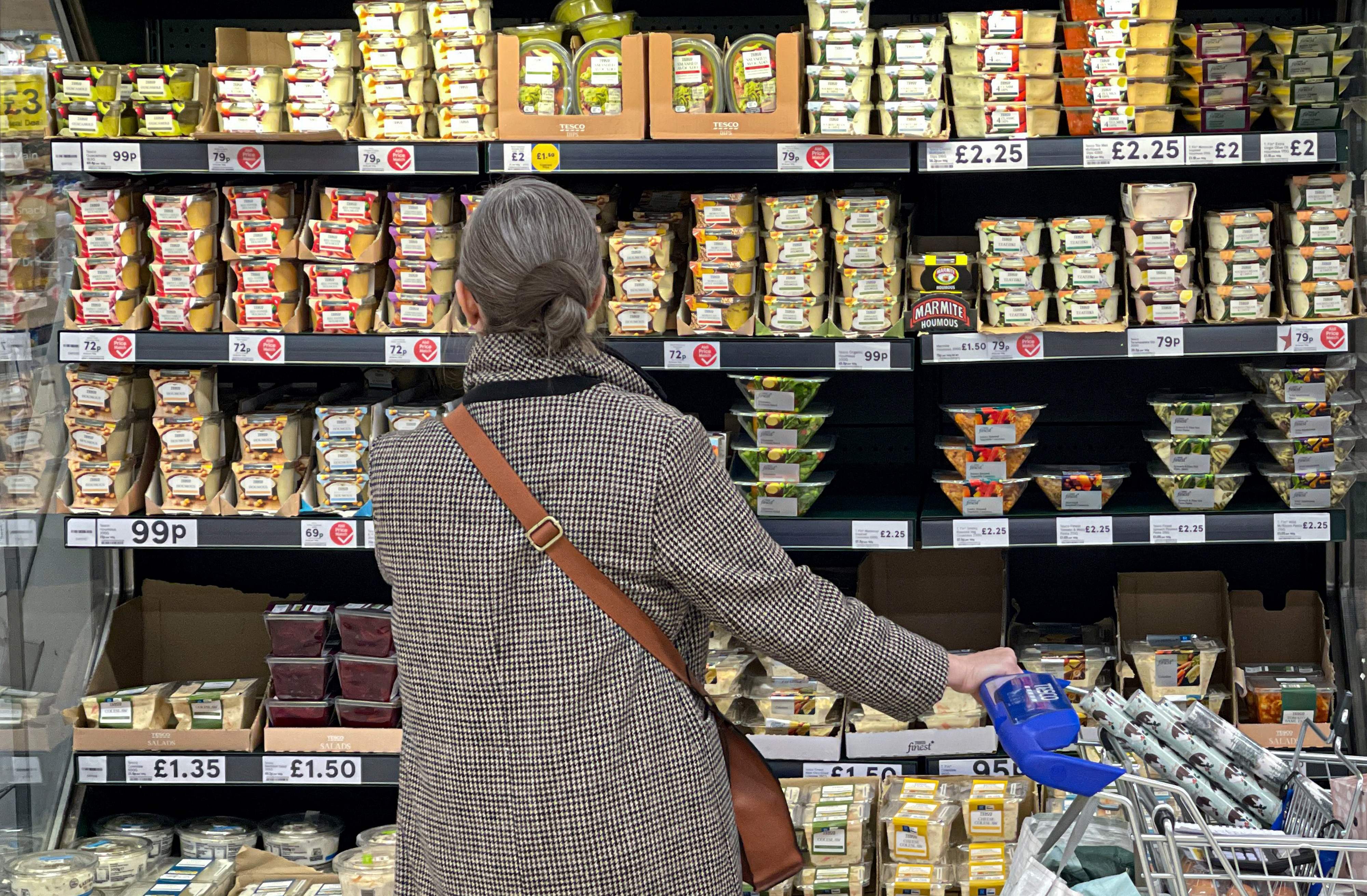Food prices will only rise further – there is serious danger of a spiral into recession
There is a growing risk that, as prices rise and the government declines to provide much help, people become more worried about what lies ahead and hold back further on their spending, argues Ben Chapman


The rising tide of inflation is beginning to cause real hardship. Average food bills are up £271 in a year, according to the latest set of depressing economic figures from analytics group Kantar.
The retail data confirms what others have said: that there is not a great deal shoppers can do to avoid being affected by the rising costs of essential goods. Average prices were 5.9 per cent higher in the three months to April compared with the same period a year earlier.
Shoppers are tightening their belts where they can, with Aldi and Lidl enjoying booming trade as a million more customers have flooded through their doors over the past few months. The two chains now account for 15.4 per cent of the market – up from just 5.5 per cent a decade ago.
Beyond supermarkets, Primark owner Associated British Foods warned that it is not immune from rising costs and will have to put up prices. Raw materials, energy and staff are all getting more expensive, the budget clothing chain said. If even Primark can no longer find cost savings, we are clearly in uncharted territory.
Ultimately, for many households, particularly those on lower incomes, there is no other option other than to consume less.
For families already struggling to make ends meet that means some truly horrendous choices, such as going without meals so that children can eat. The Trussell Trust is handing out a record number of food parcels to people facing financial hardship.
Worse is yet to come. Warmer weather means that the full impact of a massive jump in energy bills has not yet been felt.
Inflation is expected to peak late this year, before (hopefully) falling back as energy prices stabilise and businesses adjust. But economists are becoming increasingly pessimistic, with a gathering belief that price rises may become “sticky” as workers push for higher wages to offset their rising household costs.
There remains considerable debate about whether a 1970s-style wage-price spiral is a realistic prospect in a world where only a small fraction of the workforce is in a union.
But today’s figures provide a further indication that a more dangerous spiral may be waiting in the wings.
There is a growing risk that, as prices rise and the government declines to provide much help, people will become more worried about what lies ahead and hold back further on their spending.
Businesses will see their sales hit, and will choose not to invest. A temporary period of inflation thereby turns into a painful recession.
There is growing consensus that far more financial help is required to avert the catastrophe of large numbers of people being unable to afford essentials such as heating, clothing, shelter and food.
Last week, energy company bosses threw their backing behind the calls of charities, MPs and campaigners who are arguing for more support. The latest data adds yet more weight to the economic case for intervention.






Join our commenting forum
Join thought-provoking conversations, follow other Independent readers and see their replies
Comments